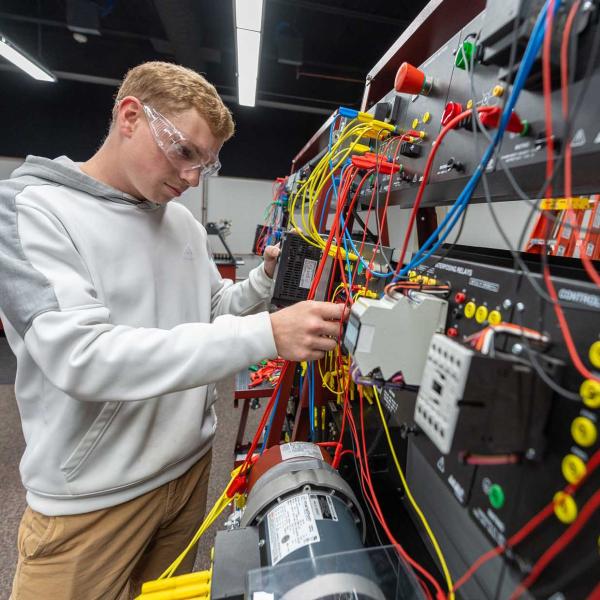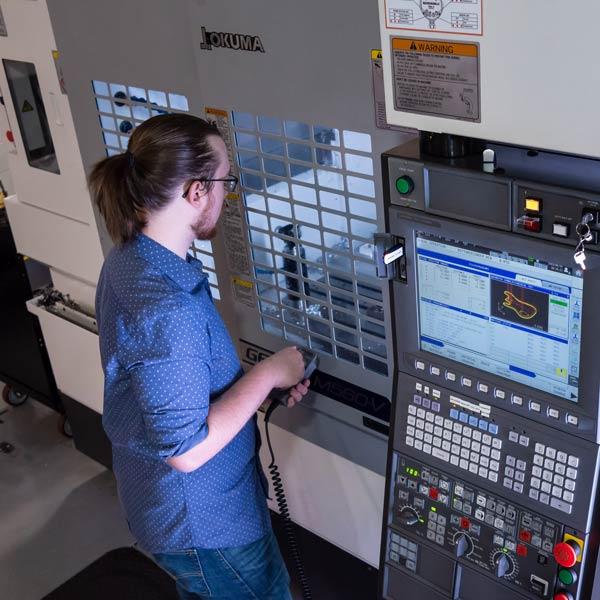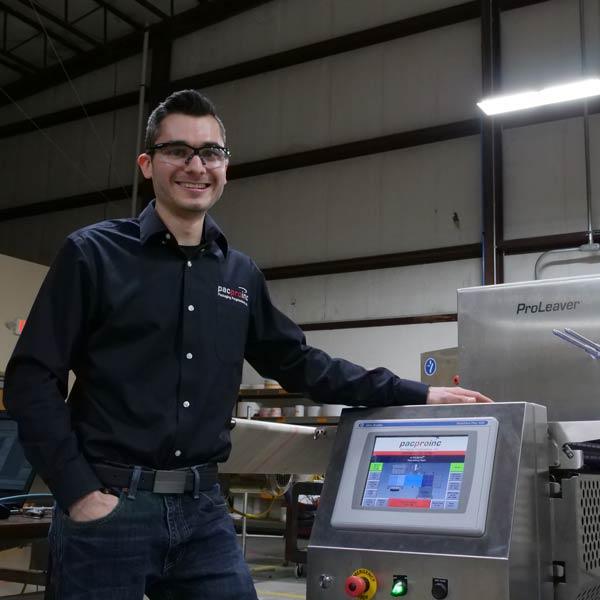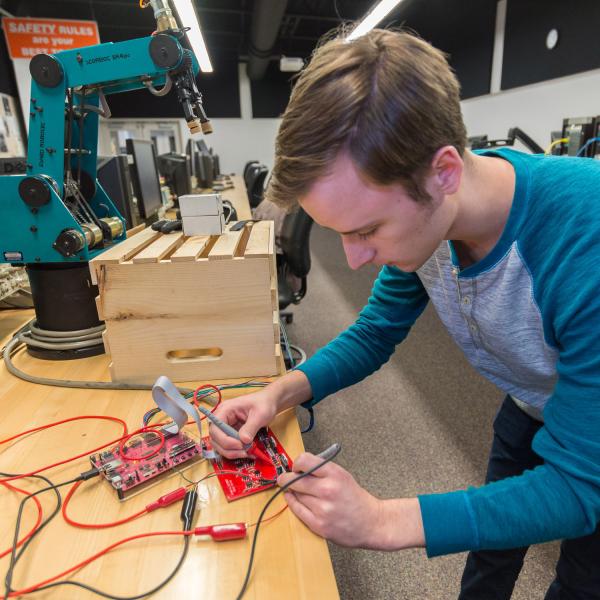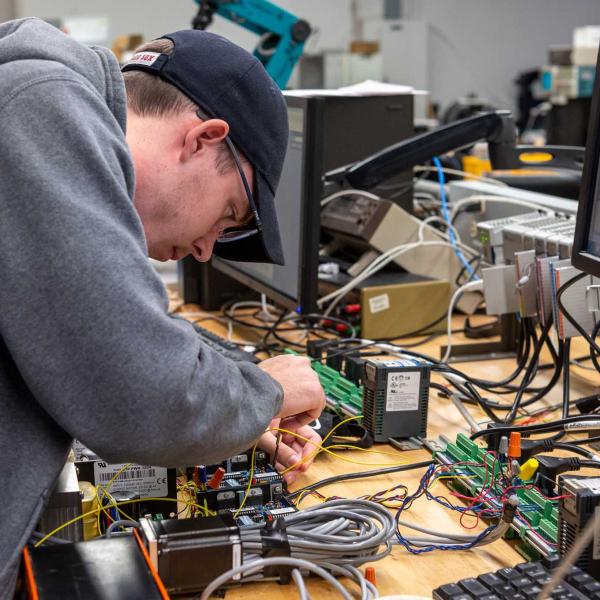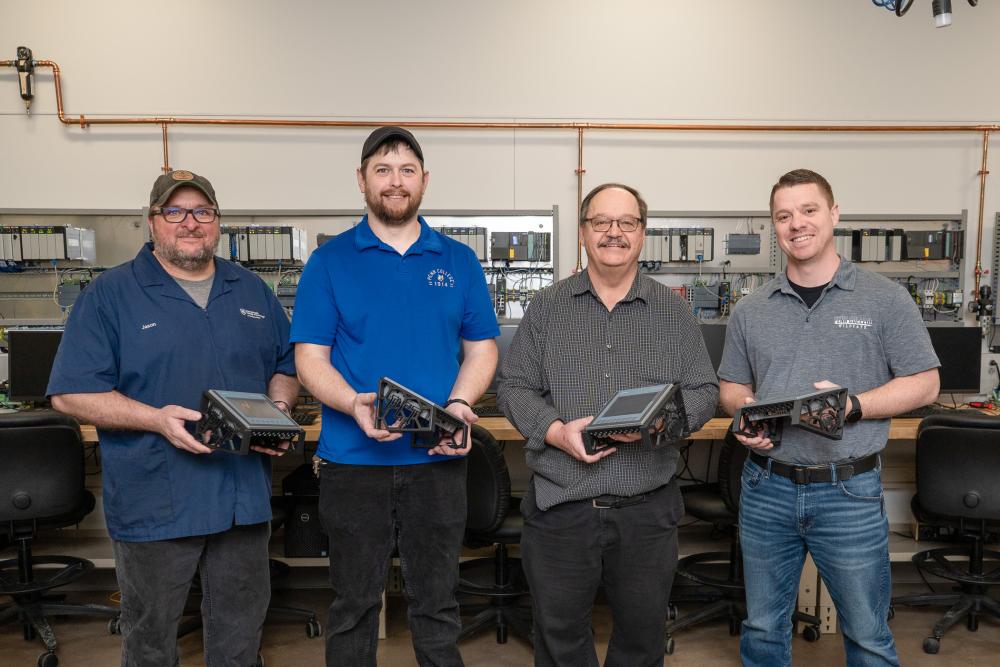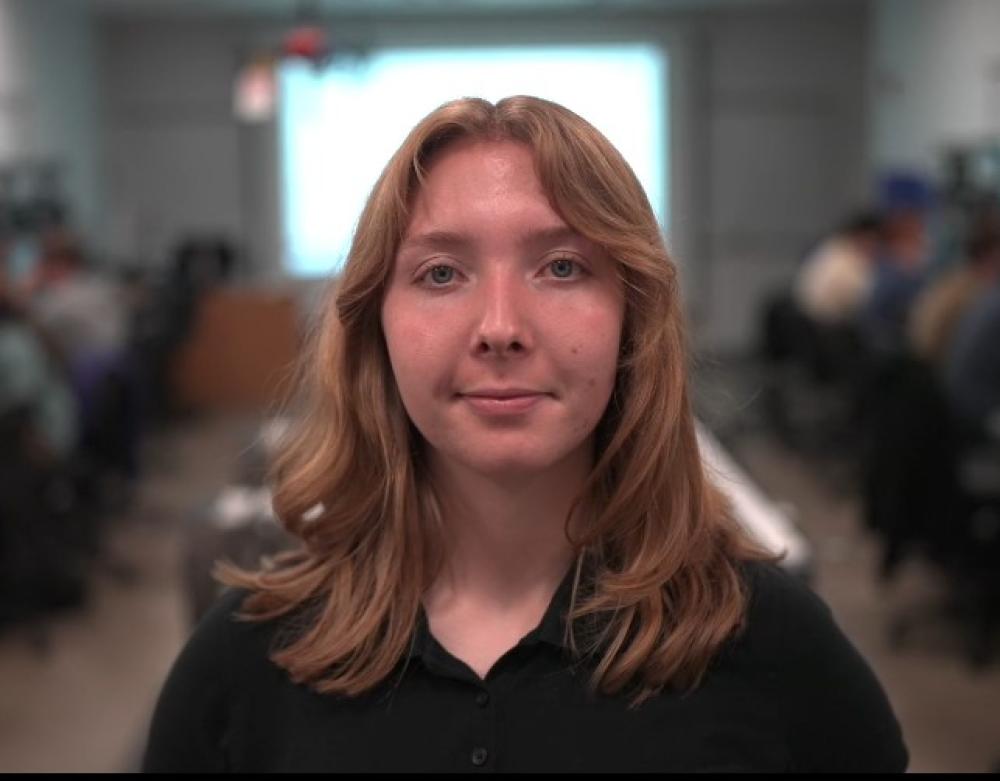Nanofabrication Technology
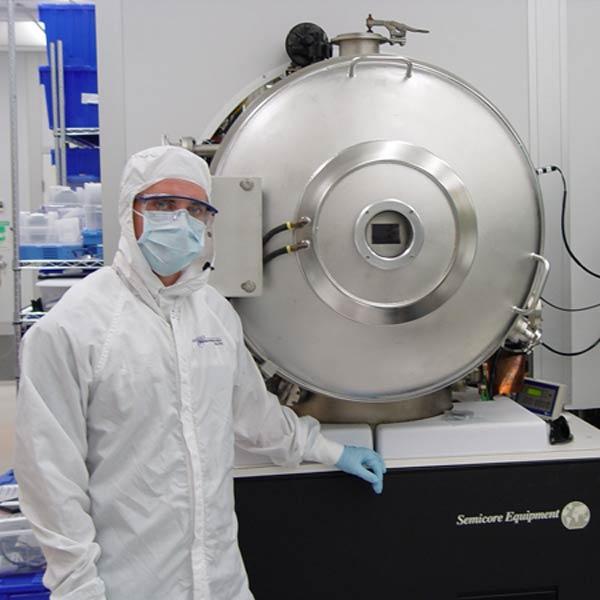
About this program
Explore the potential of nanotechnology. And take advantage of the rare opportunity to study for a semester in Penn State's multi-million-dollar Nanofabrication Facility at University Park. There, you’ll experience working in a clean-room environment using industry-specific tools to create the silicon devices impacting the computer, communications, and electronics industries.
Next steps...
You're on your way to becoming a tomorrow maker.
18
Credits
Boost Career Potential
9,500
Square-Foot Lab
Courses
At Penn College, we believe your educational experience should go beyond specialized skills. Real-world ready means taking a broader approach that builds communication skills, inspires collaboration, and encourages exploration of arts, history, and science.
Specialization requires in-depth knowledge and high-level proficiency. Students learn and apply major-specific concepts, skills, and methods.
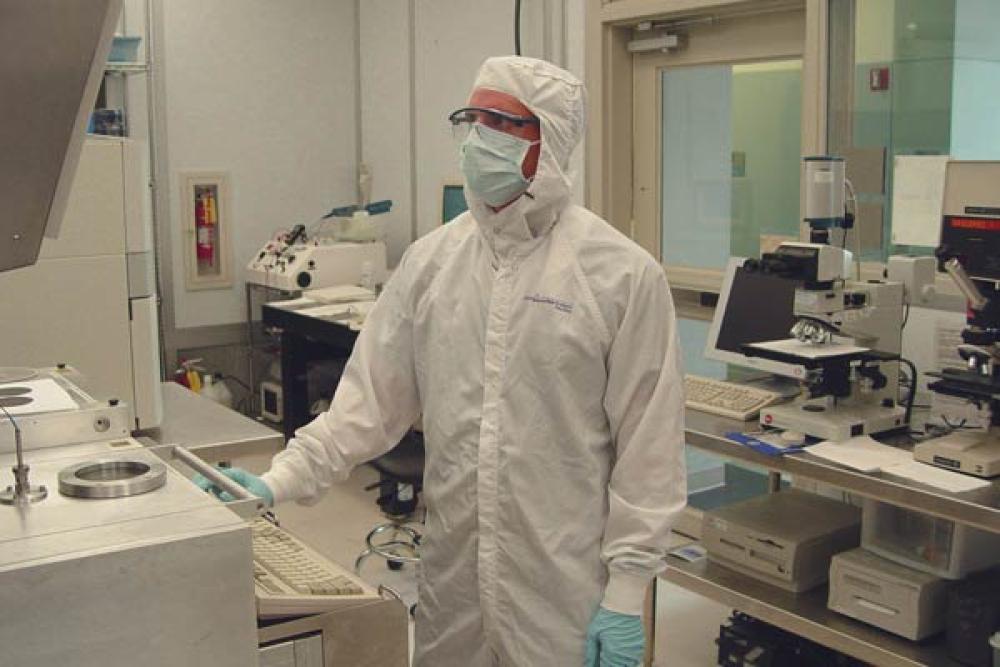
Facilities
Penn State Nanofabrication Lab
World-class capabilities are at your fingertips in this progressive 9,500 sq. ft. integrated lab facility.
Tour Schedule
Seeing is believing.
Think Penn College might be a good fit for you? Make plans to visit and discover what hands-on learning is all about.
Related Programs
Follow your passion
Penn College News
Tuesday, February 10, 2026
Collaboration benefits Penn College automation students
Monday, December 8, 2025
VIDEO: Taking the lead
More Information
- A competency credential must be completed within three years of enrollment in the credential.
- Non-traditional credit such as credit-by-exam, work/life experience, and transfer credit is limited to one third of the total credits in the credential. Two thirds of the requirements must be completed by course enrollment.
- Students must earn a grade of C or better in each course to merit the credential.
Alternative Credit refers to academic credits earned through means other than traditional college course completion, including: credit by exam, articulation, proof of competency gained in high school, work/life experience, and advanced placement.
Visit the Alternative Credit Options page for requirements and procedures and for information on credit through Advanced Placement.

